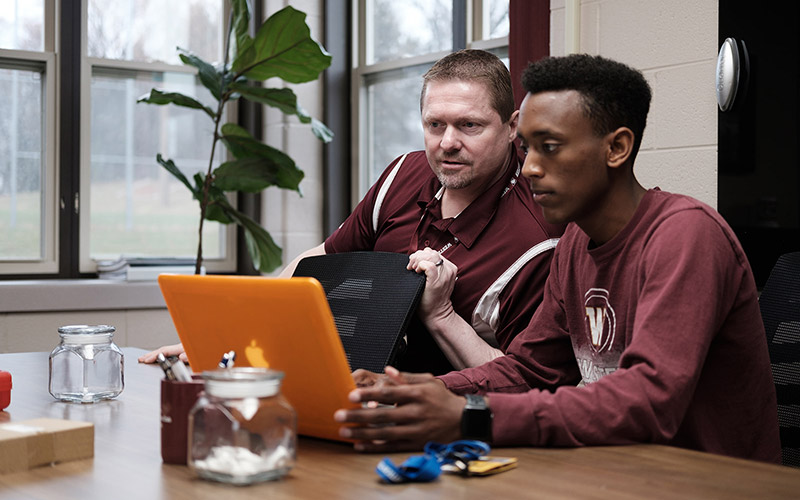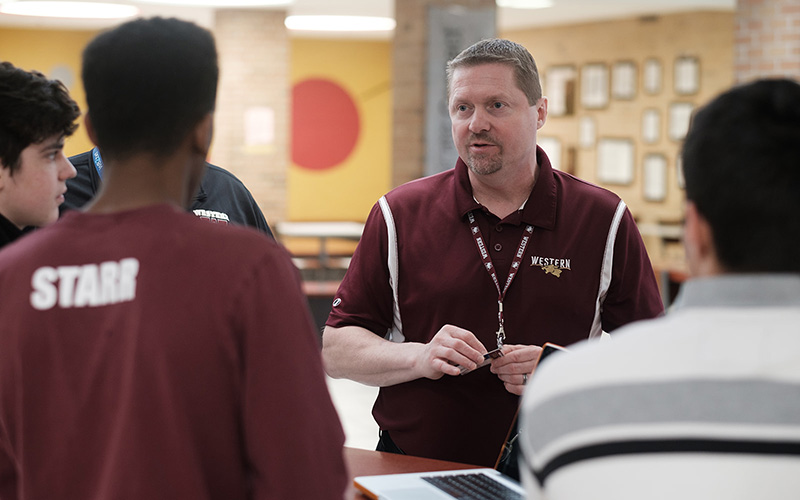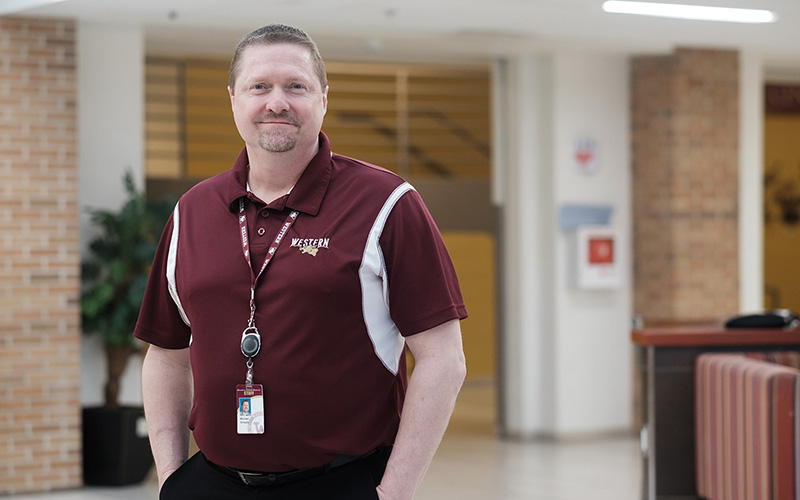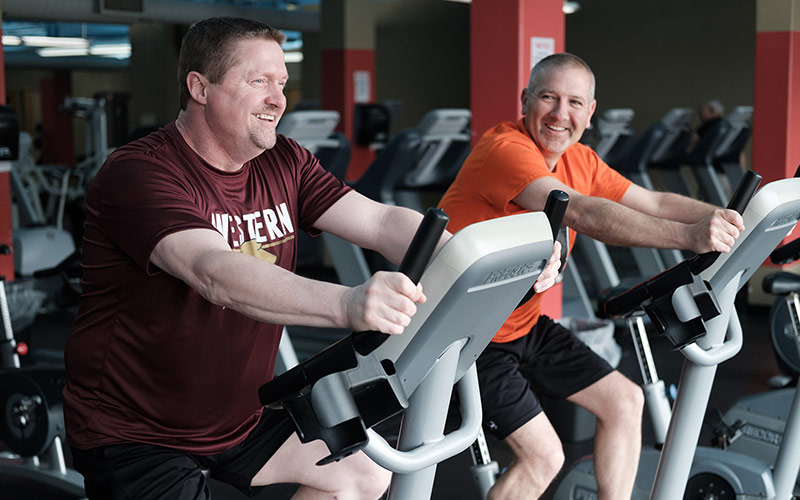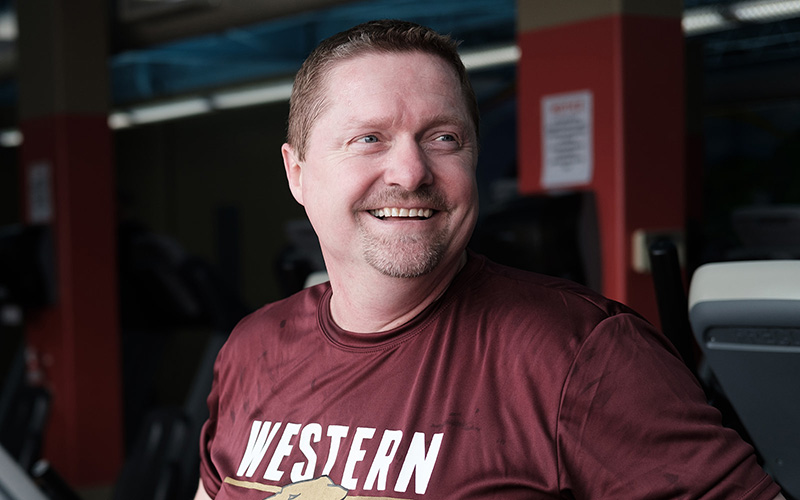Mike Smajda: Double Bypass Heart Surgery
Heart Surgery Makes Walking the Halls Much Easier
Knee pain may have saved Western School District Superintendent Michael Smajda from a major heart attack. He was scheduled to have a knee replaced last summer, but he ended up having open-heart surgery instead.
As is typical before any major surgery, Mike was required to have a few preliminary tests, including an EKG (electrocardiogram), which checks the rate, rhythm and general condition of the heart. Mike’s test results were within the normal range, but his family doctor, Randy Bell, MD, gave him a word of caution. “Because of my family history of heart disease, with an uncle, two aunts and a sister dying before the age of 46, Dr. Bell told me to let him know if I should ever experience shortness of breath,” Mike said. “I didn’t worry about it too much at the time.”
Just before scheduled knee surgery, Mike and his wife, Chris, went on vacation. His knee felt so good while they were away that Mike decided to cancel his knee replacement. Later in the summer, at a school-related conference, Mike felt confident enough in his knee to walk the mile from the conference center back to his hotel. He barely made it back, but it wasn’t because of knee pain.
“I started getting winded about halfway to the hotel,” Mike recalled. “I had to stop to catch my breath, and I began looking for shortcuts. When I finally got to my room, it took me 30 to 40 minutes for my breathing to normalize and my heart rate to slow down.”
Back in Jackson, Dr. Bell ordered a nuclear stress test for Mike. That led to a cardiac catheterization revealing a 100-percent blockage in an artery known as the “widow maker” and a 60-percent blockage in another artery. He was told that minimally invasive treatment was not possible, and he would need open-heart surgery. “The news was pretty shocking, especially for my wife and daughter, but the cardiac surgery team quickly put us at ease,” Mike said.
Cardiothoracic surgeon Mahender Macha, MD, and Physician Assistant Sarah spoke with Mike and his family, assuring them of the procedure’s extremely high success rate and providing information on what to expect immediately after surgery. “They were completely calm and confident they could fix me, and their information was very thorough. That gave us peace of mind in the weeks leading up to my surgery,” Mike said.
Mike’s surgery went well, and his family was kept informed throughout. “The anesthesiologist visited my wife to let her know I was okay, and he came to see me in my room the next day,” Mike said. “I was extremely pleased with the level of care I received.”
The healing design of the Henry Ford Allegiance Heart & Vascular Center allows patients to go directly from surgery to their own private room, where they stay until discharge. “That in itself was a huge stress reliever for me and my family, and it also meant I’d have the same team of people taking care of me,” Mike said. “Everyone—Shelley, Brad, Ross, Cammy, Tess and Sue —showed genuine care and concern for me and my family. And I was particularly impressed that Dr. Macha and Dr. Simonetti checked in on me at least twice every day.”
Mike is grateful to the surgeons and their team for getting him back to his family and the job he loves. “I had thought my lack of energy and stamina was an inevitable part of getting older,” Mike Said. “But I’m feeling so much better now.”.svg?iar=0&hash=F6049510E33E4E6D8196C26CCC0A64A4)

/hfh-logo-main--white.svg?iar=0&hash=ED491CBFADFB7670FAE94559C98D7798)
